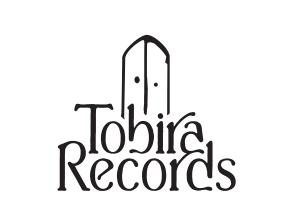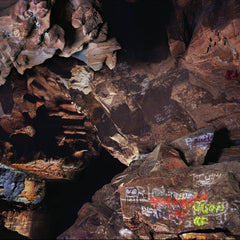OKI // Tonkori In The Moonlight LP
- Availability:
アイヌのトンコリ奏者OKIのアーカイブ作品です。
1996年のデビュー作から2006年までの作品の中からコンパイルした11曲を収録。
----------------------------------------
12" black vinyl.
Mais Um:
"Tender tonkori melodies, meditative dub excursions and Ainu folk songs combine on Tonkori in the Moonlight, an 11-track collection of mostly traditional songs performed by indigenous Ainu musician OKI.
Born on the Japanese island of Hokkaido in 1957, OKI is a contemporary of the likes of Haroumi Hosono and Midori Takada, yet as a musician who blends Ainu folk music with international influences his style is singular in the canon of Japanese music though he is quick to point out: “I might travel on a Japanese passport but I am Ainu”.
Embracing reggae, dub, Irish folk, throat singing, African drumming and music from Central Asia, it is OKI’s openness to international influences that has seen him revitalise Ainu folk music - breathing new life into a musical culture that was on the verge of extinction. He is one of only a handful of musicians who play the tonkori, a five-stringed Ainu harp, which is both the pulse of this record and the force that unifies the disparate sounds he introduces: “I’ve never seen a traditional tonkori player”, he says “They were all dead when I started”.
OKI’s father was Bikki Sunazawa, a renowned Ainu wood sculptor, yet his parents divorced when he was four: “My mum then married a Japanese man and decided to erase her past - she never told me I was Ainu. When I was 18 I received a strange phone call from a woman who said: ‘Are you OKI? Do you know your father is not your real father?’ then hung up. A few years later I came across a book on Ainu culture and inside was a photo of a sculpture by my real father – seeing his name triggered a flashback for me. I found his address, went to Hokkaido and met him”.
For the young OKI, initial joy soon turned to confusion: “I was listening to a lot of reggae music at this time which told me to go “back to my roots” so I moved to Hokkaido but it was tough as I didn't feel Ainu. My mum was also really upset and begged me to stop meeting my father”.
In 1987 OKI fled to New York to live the “Babylon” life as a director of TV commercials: “New York is love and hate. I saw great concerts – Fela Kuti, Bunny Wailer, Grateful Dead – yet I worked on TV commercials for McDonalds, Pizza Hut. I made lots of Native Indian friends though and visited the Navajo reservation in Arizona. I hung out with native Indian rude boys who were the same age as me, riding cars, smoking, shooting rifles, but when the sun went down they climbed the mountains to prey to their spirits. It got me thinking – maybe I should go back to Hokkaido”.
Once in Hokkaido a cousin gave him a tonkori – which OKI taught himself to play - setting him on the path that would turn him into a folk music revolutionary and the world’s preeminent Ainu musician. “I don’t want this to sound mythical but when my cousin gave me a tonkori, I felt it was a sign”. After returning to Japan he moved to Hokkiado and has lived there ever since. For a few years he had a role at the United Nations Committee for Human Rights, promoting indigenous culture, yet eventually decided to concentrate on music. OKI’s debut album Kamuy Kor Nupurpe was released in 1996 and since then he has recorded 11 studio albums both solo and with his Dub Ainu Band, as well as producing two albums by Ainu elder singer Umeko Ando, all released on his own label Chikar Studio. He has toured internationally – from WOMAD in the UK to the John F.Kennedy Center in Washington DC via festival appearances in Singapore, Australia and across Europe – yet remains fully immersed in Ainu culture and now handcrafts tonkoris himself, helping pass the torch to the next generation of players.
Thought to have originated in the mid 19th Century on the island of Sakhalin, the tonkori arrived in what is now the main Ainu community of Hokkaido after Sakhalin was annexed by Russia after WWII. The Japanese government had previously passed an act labelling the Ainu as "former aborigines" and with Ainu culture outlawed the Ainu are now almost fully assimilated into Japanese society - in 2011 it was estimated only 300 people understood the Ainu language. “What happened to the Ainu is similar to the Aboriginies in Australia and the Native Indians in America”, says OKI “My grandfather – a bear hunter – didn’t teach Ainu culture to my father”.
“On the shore of the rippling lake, Kamui gather from near and far
And their mightiness draws us close” (Kai Kai As To)"
Artist : OKI
Label : Mais Um
アイヌのトンコリ奏者OKIのアーカイブ作品です。
1996年のデビュー作から2006年までの作品の中からコンパイルした11曲を収録。
----------------------------------------
12" black vinyl.
Mais Um:
"Tender tonkori melodies, meditative dub excursions and Ainu folk songs combine on Tonkori in the Moonlight, an 11-track collection of mostly traditional songs performed by indigenous Ainu musician OKI.
Born on the Japanese island of Hokkaido in 1957, OKI is a contemporary of the likes of Haroumi Hosono and Midori Takada, yet as a musician who blends Ainu folk music with international influences his style is singular in the canon of Japanese music though he is quick to point out: “I might travel on a Japanese passport but I am Ainu”.
Embracing reggae, dub, Irish folk, throat singing, African drumming and music from Central Asia, it is OKI’s openness to international influences that has seen him revitalise Ainu folk music - breathing new life into a musical culture that was on the verge of extinction. He is one of only a handful of musicians who play the tonkori, a five-stringed Ainu harp, which is both the pulse of this record and the force that unifies the disparate sounds he introduces: “I’ve never seen a traditional tonkori player”, he says “They were all dead when I started”.
OKI’s father was Bikki Sunazawa, a renowned Ainu wood sculptor, yet his parents divorced when he was four: “My mum then married a Japanese man and decided to erase her past - she never told me I was Ainu. When I was 18 I received a strange phone call from a woman who said: ‘Are you OKI? Do you know your father is not your real father?’ then hung up. A few years later I came across a book on Ainu culture and inside was a photo of a sculpture by my real father – seeing his name triggered a flashback for me. I found his address, went to Hokkaido and met him”.
For the young OKI, initial joy soon turned to confusion: “I was listening to a lot of reggae music at this time which told me to go “back to my roots” so I moved to Hokkaido but it was tough as I didn't feel Ainu. My mum was also really upset and begged me to stop meeting my father”.
In 1987 OKI fled to New York to live the “Babylon” life as a director of TV commercials: “New York is love and hate. I saw great concerts – Fela Kuti, Bunny Wailer, Grateful Dead – yet I worked on TV commercials for McDonalds, Pizza Hut. I made lots of Native Indian friends though and visited the Navajo reservation in Arizona. I hung out with native Indian rude boys who were the same age as me, riding cars, smoking, shooting rifles, but when the sun went down they climbed the mountains to prey to their spirits. It got me thinking – maybe I should go back to Hokkaido”.
Once in Hokkaido a cousin gave him a tonkori – which OKI taught himself to play - setting him on the path that would turn him into a folk music revolutionary and the world’s preeminent Ainu musician. “I don’t want this to sound mythical but when my cousin gave me a tonkori, I felt it was a sign”. After returning to Japan he moved to Hokkiado and has lived there ever since. For a few years he had a role at the United Nations Committee for Human Rights, promoting indigenous culture, yet eventually decided to concentrate on music. OKI’s debut album Kamuy Kor Nupurpe was released in 1996 and since then he has recorded 11 studio albums both solo and with his Dub Ainu Band, as well as producing two albums by Ainu elder singer Umeko Ando, all released on his own label Chikar Studio. He has toured internationally – from WOMAD in the UK to the John F.Kennedy Center in Washington DC via festival appearances in Singapore, Australia and across Europe – yet remains fully immersed in Ainu culture and now handcrafts tonkoris himself, helping pass the torch to the next generation of players.
Thought to have originated in the mid 19th Century on the island of Sakhalin, the tonkori arrived in what is now the main Ainu community of Hokkaido after Sakhalin was annexed by Russia after WWII. The Japanese government had previously passed an act labelling the Ainu as "former aborigines" and with Ainu culture outlawed the Ainu are now almost fully assimilated into Japanese society - in 2011 it was estimated only 300 people understood the Ainu language. “What happened to the Ainu is similar to the Aboriginies in Australia and the Native Indians in America”, says OKI “My grandfather – a bear hunter – didn’t teach Ainu culture to my father”.
“On the shore of the rippling lake, Kamui gather from near and far
And their mightiness draws us close” (Kai Kai As To)"
Artist : OKI
Label : Mais Um







